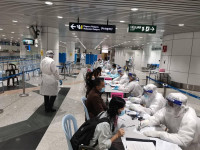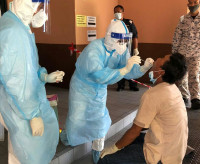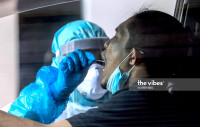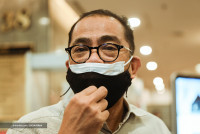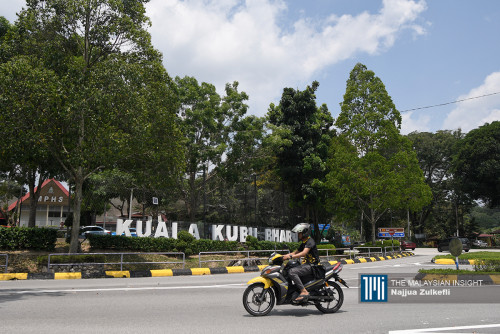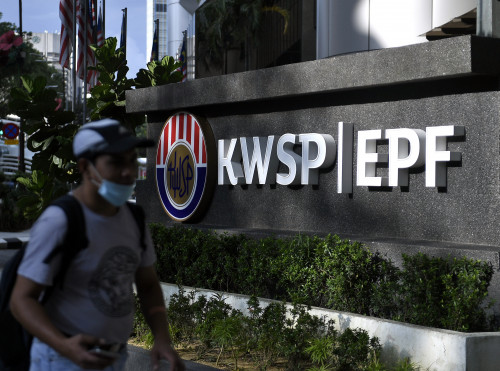TWO medical experts took time off from their laboratories to take part in a webinar to boost confidence among Malaysians to register for the National Covid-19 Immunisation Programme.
The recently held webinar was organised by the Petaling Jaya-based The Petri Dish news portal and the Science Media Centre (SMC). It aims to ease fears and instil trust among the public to support government initiatives to create “herd immunity” against Covid-19 infections.
Streamed live on the SMC Facebook page, the campaign, supported by Duopharma Biotech as part of its CSR programme, was hosted by Prof Dr Norazmi Mohd Nor of Universiti Sains Malaysia and epidemiologist Assoc Prof Dr Malina Osman from Universiti Putra Malaysia. It was moderated by Dr Mahaletchumy Arujanan, executive director of Malaysian Biotechnology Information Centre and editor-in-chief of The Petri Dish.
Vaccine safety and effectiveness
As the vaccines were developed over a very short time – unlike traditional vaccines developed over a considerable long period of research – there is a general concern over its effectiveness and safety profile among the public. But, Norazmi lent assurance that no corners were cut in developing the Covid-19 vaccines.
“The rapid way these vaccines were developed is possible today because of the availability of new technologies as well as urgent funding made available. This is due to the critical need for these vaccines at a shorter period and the prevailing circumstances. Every good effort was put in place to develop them with strong international collaboration and the availability of large volunteer groups to do clinical trials.”
According to him, apart from the stringent safety tests as well as clinical studies before they were approved, the vaccines underwent global surveillance in their Phase Four trials. During this period, any adverse side effects would be noted and reported immediately. He said crucial data was shared among all the vaccine-producing countries and decisions were jointly concurred with, including recalling the vaccine.
He said: “An estimated 450 million people have been vaccinated globally to date and there are no mortalities directly linked to any of these vaccines. Even if someone gets re-infected with the SARS-COV-2 virus after receiving the complete two doses, disease severity will be very low.”
Vaccine literacy
To familiarise the public and to ease their fears, both experts explained new terminologies on vaccine production. Some of the mind-boggling terms like mRNA, antigen, immunity, spike protein, and viral vector were described in simple terms and by using analogies for the public to understand them.
“Like DNA, mRNA is also a hereditary (genetic) material. It codes for specific proteins,” Dr Malina Osman explained. Norazmi pointed out the term “immunity” means the body’s ability to defend itself against disease-causing agents such as bacteria and viruses. One gains immunity either by being vaccinated or an actual infection.
Malina described “spike protein” as the pointed limbs on the surface of the virus. She said these spikes can activate an immune response in our body by producing antibodies that could destroy the invading virus or bacteria.
Norazmi explained that “antigens” are the invading organism that causes disease. Antigens are either part of the organism or its whole structure. He said that “spike proteins” are only a part of the complete organism but are still considered antigens. In developing vaccines to protect against Covid-19 infections, it is the spike proteins that are used, he explained.
The immunologist also explained the term “viral vector” using a simple analogy. He said the viral vector is like a vehicle or transporter. A vehicle or carrier is required to transport the mRNA or DNA into our body. For the development of the Covid-19 vaccines, researchers used a virus that is harmless or has been disabled as the vector.
Vaccine types
Malina also explained the reason there are different types of vaccines and the various ways by which they are developed. According to her, the viral vector vaccines, mRNA type, inactivated or live attenuated virus, and protein subunits.
She said inactivated or live-attenuated vaccines are those that are developed the traditional way. In this method of vaccine development, the virus is either killed or disabled such that it will not be able to cause disease. The inactivated virus is then used in the vaccine so that it could trigger an immune response to fight an antigen that invades the body.
She said: “The mRNA vaccines are the types in which a part of the virus’s RNA sequence is used. The sequence produces the “spike protein” which then triggers the production of antibodies to fight any invading virus.”
Norazmi chipped in, saying most people believe that mRNA vaccines are the result of newer technologies, but this is not true. He said mRNA vaccine technology has been around for more than 30 years.
Norazmi also explained that the subunit vaccine types are parts of a virus that is used to affect immune response. “The viral vector, as explained earlier, uses another harmless virus to transport the DNA that issues spike protein in our body and turn, cause the production of antibodies."
Why so many vaccines?
To a question prompted by Mahaletchumy, Malina said it is a strategy by world governments not to solely rely on one vaccine to battle a pandemic caused by Covid-19 infection.
She said: “Initiatives to achieve ‘herd immunity’ can be disrupted if there are diplomatic hitches with vaccine vendor country. The demand for vaccines is currently high, as we are dealing with a global pandemic. It is also wise to secure several vendors as there are varying logistics requirements. She also pointed with more vendors, countries can select vaccines according to individual infrastructural needs.
On side-effects, contraindications, and comorbidities
Malina explained that post-vaccination side-effects are common whenever any vaccine is injected into a person. She said while some people do not show any side effects after vaccine injections, most people do show some mild side effects like soreness and numbness at the site of the injection, body aches, mild fever, headache, fatigue, diarrhoea as well as swelling in the neck glands.
But, she said people should weigh in these mild side effects against the benefit of being sick with the Covid-19 injection. “The benefits far outweigh the risks,” she encouraged.
She also explained the term “contraindications” which she said is a medical terminology meaning vaccines or medications cannot be administered to certain people who may react adversely to them due to certain health conditions such as having an allergy.
The public need not worry, however, as they will be screened by physicians before being vaccinated. She said most people are safe to be vaccinated. She explained the term comorbidity as a person having two, three, or more critical conditions such as heart disease, hypertension, and diabetes.
“These people too can be vaccinated too, but will be health-screened first,” she added.
Phases in vaccine-testing
Norazmi took time to explain clinical trials and the various phases of testing a vaccine candidate undergoes. He said long before clinical or Phases 1–3 of testing commences; scientists begin Phase 0.
He said: “The vaccine is tested with a very small number of people to first determine its safety. Only then from Phases 1–3, small groups of people receive the trial vaccine, where its safety is established.
“Then in Phases 1–3, the number of volunteers is increased. In Phase 1 again, small groups of people receive the trial vaccine where again its safety profile is established. In Phase 2, the vaccine’s safety is again noted, but this time the right dosage is also studied.”
Norazmi, who himself works on vaccines, said in Phase 3 many people, usually in the thousands, are tested to gain a final conclusion on all aspects of the vaccine including safety and effectiveness.
Halal and herd immunity
On the issue of halal vaccines, Norazmi made a convincing point: “Even the water supply that reaches our home taps are sourced from rivers and other open water sources which may contain animal carcasses. But we all know that the water undergoes a purification process and that makes it safe and halal for Muslim consumers.”
Malina chipped in saying: “Just like how water undergoes a process of purification, it is the same with vaccines, too,” She added, “vaccines undergo purification and regulatory processes that make them compliant and safe for Muslims.”
“As a Muslim scientist, I am not sceptical about the content of the vaccine because to me the vaccine is halal,” Norazmi assured.
When prompted to explain “herd immunity” by the moderator, both Norazmi and Malina concurred that it is arriving at a state when a large population gains immunity against the Covid-19 virus either by infection or a largescale vaccination programme. “This would leave the virus with no host and it will dissipate and disappear,” they said.
Mahaletchumy added: “When an entire community has gained herd immunity, it is another way of protecting children and others who cannot be vaccinated,” and the experts concurred with her suggestion.
The two experts concluded their session jointly with this takeaway message: “We do not have any other alternative, except to be promptly vaccinated to end the pandemic and get back to normal life.”
Malaysia’s inoculation campaign began on February 24.
To date, 583,903 people have received their first vaccine dose and 395,891 have been administered both doses. So far, 8.51 million people have registered for the National Immunisation Programme. – The Vibes, April 14, 2021
Watch the Webinar: 'Kenali Vaksin Covid-19' below:






